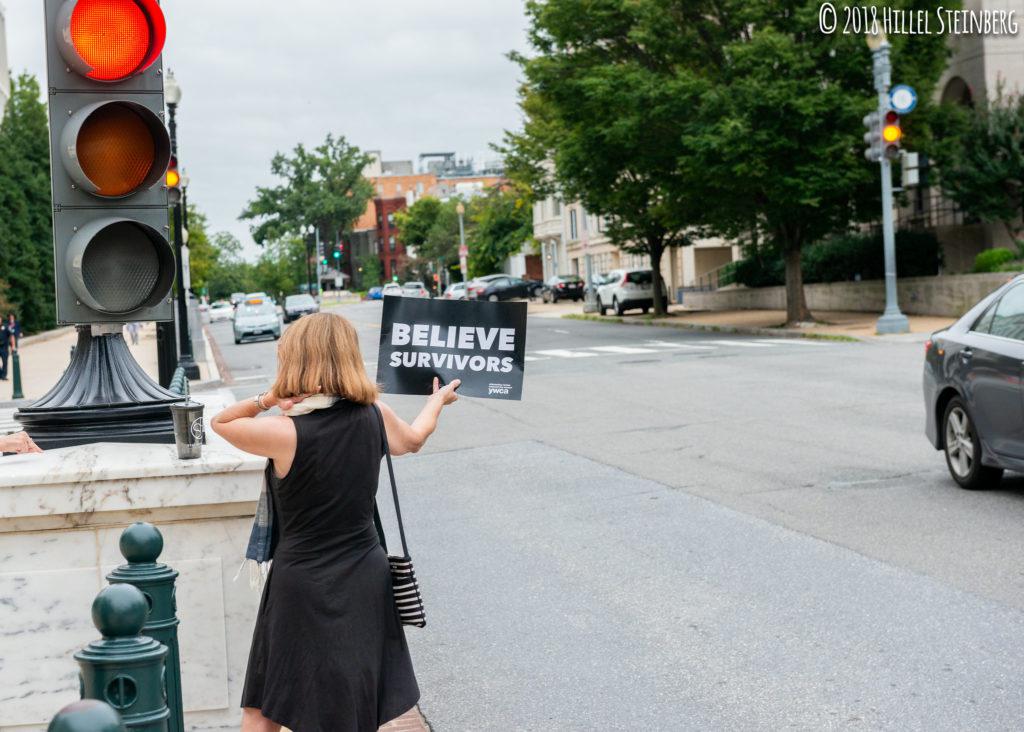|
We Help Child Sex Abuse Survivors Break Their Silence When We Show Them Support
By Ashley Garling
This month, communities across the country are gathering at local ‘Take Back the Night’ events in observance and support of those impacted by sexual violence. In the last year—as news broke about Baptist church leaders abusing children and the Pope acknowledged nuns were being abused by church leaders—sexual violence facing children proved to be an international crisis. Investigations of both found the majority of the crimes had been long standing and some even continued for decades, but little is said about support for the victims. This silence is dangerous. Without access to healthcare, support from loved ones and support from the community, it can lead to serious mental health consequences. Over 24 million individuals experiencing a mental health illness are going untreated primarily due to poor access, and the results of that lack can be catastrophic. Included in that number are more than 5 million survivors of child sexual abuse. Child abuse victims are three to four times more likely to suffer from post-traumatic stress (PTSD), depression and self-medicate with dangerous drugs, according to RAINN. They suffer in silence without access to help and support—all while their perpetrators continue to live normal lives. As a 12-year-old victim of sexual abuse, I needed more than just access. I also needed the support of my community, my friends and my family. I knew that what was happening to me was wrong, but I never told anyone at the authorities. That was one of the only regrets of my life. I know that I am not alone in my silence: According to the National Sexual Violence Resource Center, one in six boys and one in four girls are sexually abused in the United States before the age of 18. This statistic rises to one in three women that become victims of sexual violence within their lifetime. As in my case, the majority of these crimes go unreported, with only 12 percent of child sexual abuse being reported to authorities. One of the primary reasons that victims do not speak out is that they fear that others will not believe their claims. I have only told my story to close friends and family. My abuser was a police officer, the step-father living in my home, the person I was supposed to be able to trust. He was the one who warned me of strangers and the dangers of the world, all the while knowing that he harbored the very demons that he warned me about. The abuse started around the time I turned 12. I was hoping for a Walkman on my birthday, and, if I was lucky, a puppy. I did get that puppy, but it was a bittersweet birthday present—because it was a bribe to keep me from telling anyone that I was being sexually violated. The shame, guilt, fear and loss of confidence felt by a survivor are often too much to bear alone. I experienced post-traumatic stress (PTSD) and flashbacks for many years, especially when trying to form relationships with the opposite sex. These flashbacks could strike at any time and without warning, in the shower or in a movie theater, and they were starting to push me to the edge. In college, I could no longer take the anguish of PTSD, and I sought help from a crisis center named Hope Harbor in Bowling Green, Kentucky. If it weren’t for the dedication, patience and support I received from my late counselor, Pam Campbell, I would not have become the successful woman, pharmacist and mother I am today. It took years of intensive, twice weekly, one-on-one therapy sessions for me to stop being a victim, develop self-acceptance and bloom into the survivor and heroine of my own story. Unfortunately, many men and women are not as lucky as I was to have access to such a wonderful resource. RAINN also reports that 70 percent of rape or sexual assault victims, suffer from significant psychological distress. This figure dwarfs that of victims of other violent crimes. Victims of sexual assault are also three times more likely to use marijuana, six times more likely to use cocaine, and 10 times more likely to use other major drugs. Survivors of sexual violence are at a higher risk for anxiety, PTSD, depression, eating disorders, dissociative and personality disorders. The link between these mental health responses to sexual violence and substance abuse is so prevalent that The National Violence Against Women Prevention Research Center reports survivors are 26 times more likely to abuse drugs. This is not the primary reason for the substance abuse crisis in America, but there is an undeniable correlation. Sexual abuse survivors need access to mental health resources and, equally as important, support. If we—as family, friends and American citizens—would support, believe and love those who say they have been victimized, we may start to see a decrease in national crises like substance abuse in addition to addressing sexual violence. Survivors need easy access to recovery centers, counseling and mental health resources. But first they need to find the courage to break their silence.
|
.
Any original material on these pages is copyright © BishopAccountability.org 2004. Reproduce freely with attribution.
